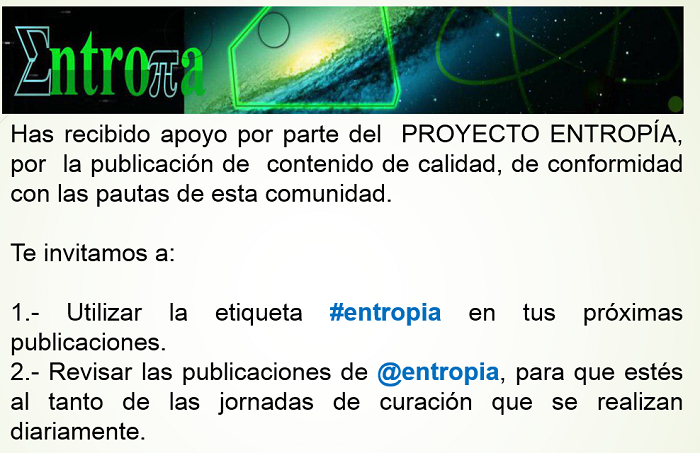Hello, friends of literature.
In the author's own words: "This is a terrible book." And not precisely because it's bad, but quite the opposite. Ovejas en el collimador is the book written by the young writer from Las Tunas, Eduardo Daniel Rosell Herrera; it won the 2023 Mangle Rojo Award and was published by Ediciones Áncoras at the Havana International Book Fair in 2024.
This happened in less than four months, thanks to the excellent editing, design, and other departments involved at this publishing house from Las Tunas. Something worthy of recognition, without a doubt. You can also find it for free download on the [Alta Literatura] blog (https://altaliteratura.wordpress.com/ediciones-alta-literatura/Eduardo-daniel-rosell-herrera).
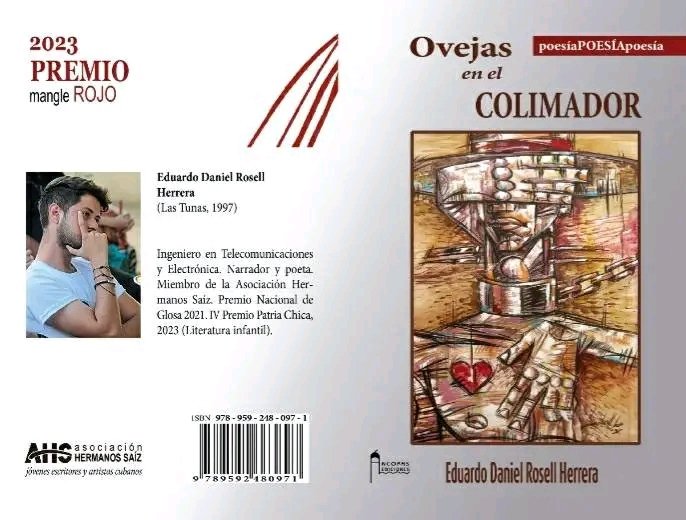
Las Tunas is a land of poets. The poetry I've read and heard in this province is unlike any other in the country. Ovejas en el collimador is no exception. This is a different kind of book, so to speak. It's a collection of poems where every element (including dedications and footnotes) is written in décimas (tenths). Not the conventional ones, though; it's completely deconstructed. Many might mistake its texts for free verse, due to the author's excellent work in hiding the rhymes whenever he chose.
This is a very well-thought-out book from the moment of its conception. It's a book that invites you to think. It is a daring and necessary book, as it reaffirms the genre of the written décima and restores it to its rightful place of honor. It is no secret that the décima has not been sufficiently recognized or valued by many readers and writers alike. Like genres such as fantasy and science fiction, the décima has been viewed by various groups as a minor poetry, for "guajiros," for peasants, a straitjacket. And there is nothing more erroneous than believing that.
This notebook demonstrates that this poetic stanza creates no barriers or limits; and that it can even be used to write literary essays, humor, social criticism, dedications, notes, and love poems if one so desires and has the tools or talent to do so.
Hence, Rosell wrote this book, so full of tributes to his teachers and irreverence for the universe. His poetry is transgressive, biting, incisive, rich; never seeking to resemble the rest or comfortable anywhere. To this end, the author divided the book into three sections: Area for Colimating Authors, Toxic Waste Zones, and Other Waste.
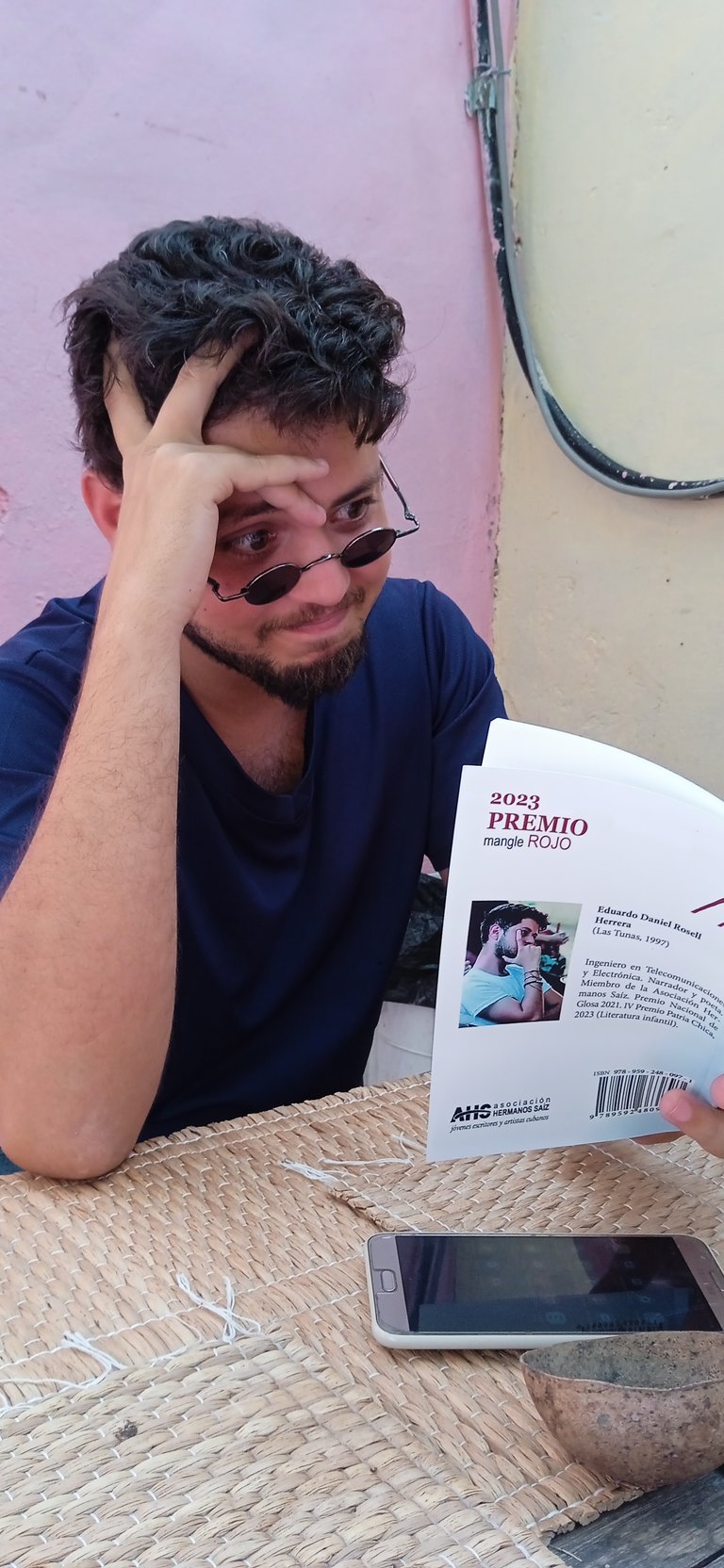
Anyone familiar with Eduardo Rosell knows that his first literary award was in a gloss competition. Perhaps that's why this first section, Area for Colimating Authors, is composed of glosses on various writers (whom he calls "test subjects" as part of his conception of the book) who exerted some kind of influence on his work, his personality, or his career as a writer. This could very well be a kind of homage, a tribute to these authors and to himself.
In Area for Colimating, the author engages in dialogue with his test subjects. With them, he reflects on being, life, and the situations in which he or they may have found themselves. This may be the most philosophical and respectful section of the book. Certainly, this is the way one should engage in dialogue with masters.
Having concluded this section, we come to the second: Toxic Waste Zone. This is dedicated to the lyrical subject/author. It's the shortest part of the notebook, but the most intense. It's there where he feels free to release all the "poison"—that toxic waste left over from so many readings and the passing of life.
If before he conversed and listened to the test subjects like a faithful disciple, now the roles are reversed. Now he's the one interpreting, philosophizing, and denouncing social and human ills. Ills, even, like the war that has plagued Palestine for many years.
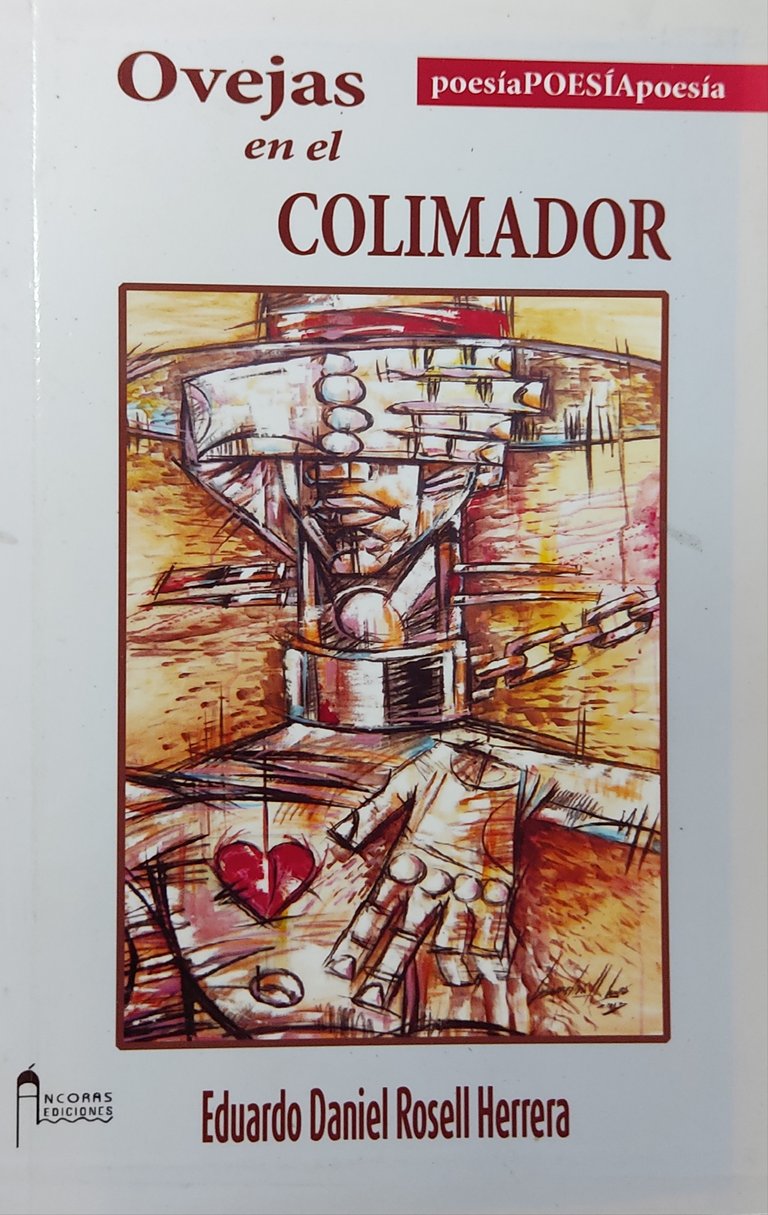
In Other Wastes, the author returns to the test subjects; but this time, he focuses on the literary works that, in one way or another, left a mark on him. Rosell names the poems in this section "Waste." Perhaps because of that quality that good texts leave us with: they continue to repeat themselves in our minds (long after they've been read), deconstructing and penetrating our DNA until they become something of our own. Among the collimated books/waste in this section, we will find everything from unpublished books by the author himself to the remnants left behind by Ovejas en el colimador when it was written.
Writing this book was an act of courage, a sure bet for the future. Jorge García Prieto once referred to Rosell as “the future of the décima in Cuba,” and I don't think he was wrong. Ovejas en el colimador is a compelling proof of that.
These are texts to be consumed by open-minded readers who enjoy digging among the letters. Readers who aren't satisfied with a single level of reading in poems. Readers eager for poetry; even the kind that can be found in the rawest and most visceral texts.
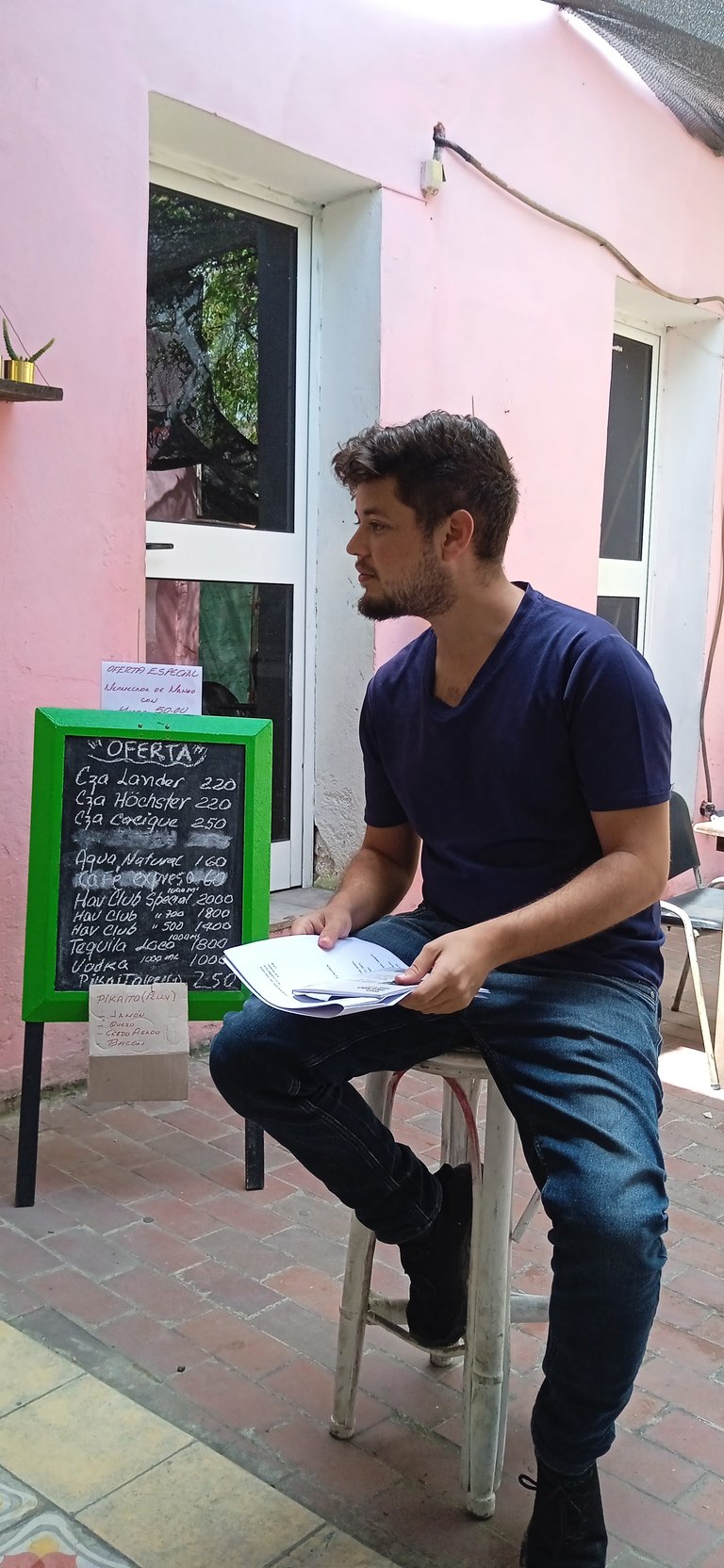
In this book, I saw a young writer who isn't content with just writing a collection of poems and putting them down on paper. I saw a writer who sees the book as a whole, as a work of art in the full magnitude of the word. Rosell saw in this book the opportunity to play with structures and use them in pursuit of content; of what he had to say/to us. As if that weren't enough, he found a way to honor and promote those test subjects, those authors who are an intrinsic part of his work. These sheep of color range from young writers to established ones, such as Alexander Jiménez, Odalys Leyva, Argel, and Junior Fernández. We also find authors such as Friedrich Nietzsche and Edmund Husserl, among many other poets and writers.
This is a book that validates not only the décima and its artistic and cultural value, as I mentioned before; but also confirms that a star is rising, and we should follow it closely.
Versión en español
Hola, amigos de la literatura.
En palabras del propio autor: “Este es un libro terrible”. Y no precisamente por malo, sino todo lo contrario. Ovejas en el colimador es el libro escrito por el joven escritor tunero, Eduardo Daniel Rosell Herrera; quien obtuvo el premio Mangle Rojo 2023 y fue publicado por Ediciones Áncoras en la Feria internacional del libro de La Habana en el 2024. Hecho que, sucedió en cuestión de menos de cuatro meses, gracias al excelente trabajo de edición, diseño y demás departamentos implicados de dicha editorial pinera. Algo digno de reconocer, sin duda alguna. Además, pueden encontrarlo para descarga gratuita en el blog de Alta Literatura.

Las Tunas es tierra de poetas. La poesía que he leído y escuchado en esta provincia, no se parece a la de ninguna del resto del país. Ovejas en el colimador no es la excepción. Este es un libro distinto, por así llamarlo. Es un poemario donde cada elemento (incluidas dedicatorias y notas al pie) está escrito en décimas. Pero no las convencionales, sino que está completamente deconstruido. Muchos podrían confundir sus textos como verso libre, por el excelente trabajo del autor de ocultar las rimas siempre que así lo quiso.
Este es un libro muy bien pensado desde el momento de su concepción. Es un libro que te invita a pensar. Es un libro arriesgado y necesario ya que revalida género de la décima escrita y la vuelve a colocar en el lugar de honor que le corresponde. No es un secreto que la décima no ha sido lo suficientemente reconocida o valorada tanto por muchos lectores como por escritores. Al igual que géneros como la fantasía y la ciencia ficción, la décima ha sido vista en varios grupos como una poesía menor, de “guajiros”, de campesinos, una camisa de fuerza. Y no hay nada más errado que creerse eso.
Este cuaderno demuestra que esta estrofa poética no crea barreras ni tiene límites; y que se puede utilizar hasta para escribir ensayos literarios, humor, crítica social, dedicatorias, notas y poemas de amor si así se quiere y se tienen las herramientas o el talento para hacerlo.
De ahí que Rosell escribiera este libro tan lleno de homenajes a sus maestros como de irreverencia al universo. Su poesía es transgresora, mordaz, incisiva, rica; nunca en busca de parecerse al resto ni cómoda en lugar alguno. Para esto el autor dividió el libro en tres secciones: Área para colimar autores, Zonas de desechos tóxicos y Otros desperdicios.

El que conoce al Eduardo Rosell sabe que su primer premio literario fue en un concurso de glosas. Quizás por eso esta primera sección Área para colimar autores, está compuesto por glosas a varios de escritores (a los que llama “sujetos de prueba” como parte de su concepción del libro), que ejercieron algún tipo de influencia en su obra, persona o en su carrera como escritor. Este bien podría ser una especie de homenaje, de tributo a estos autores y a sí mismo.
En Área para colimar, el autor dialoga con los sujetos a prueba. Con ellos reflexiona sobre el ser, la vida, las situaciones en que él o ellos pudieron encontrarse. Esta, es posible, que sea la zona más filosófica y respetuosa del libro. Desde luego, esa es la manera en que se debe dialogar con los maestros.
Habiendo cerrado esta sección, nos llega la segunda: Zona de desechos tóxicos. Esta es la dedicada al sujeto lírico/autor. Es la parte más corta del cuaderno, pero más intensa. Es ahí donde se siente libre para soltar todo el “veneno”; esos desechos tóxicos remanentes, luego de tantas y tantas lecturas y el transcurrir de la vida.
Si antes conversaba y escuchaba a los sujetos de prueba como fiel discípulo, ahora se invierten los papeles. Ahora es él quien interpreta, filosofa, denuncia los males sociales y del hombre. Males, incluso, como la guerra que, desde hace muchos años, afecta a Palestina.

En Otros desperdicios, regresa el autor a los sujetos de prueba; pero esta vez, se concentra en las obras literarias que, de un modo u otro, dejaron una huella en él. Rosell nombra a los poemas de esta sección como “Residuos”. Quizás por esa cualidad que nos dejan los buenos textos, de continuar repitiéndose en nuestra mente (tiempo después de haber sido leídos), e ir deconstruyéndose y adentrarse en nuestro ADN hasta transformarse en algo propio.
Entre los residuos/libros colimados en esta sección hallaremos, desde libros inéditos del propio autor, hasta los residuos que dejaron Ovejas en el colimador al ser escrito.
Escribir este libro fue un acto de valentía, una apuesta segura por el futuro. Jorge García Prieto se refirió a Rosell un día como “el futuro de la décima en Cuba”, y no creo que se haya equivocado. Ovejas en el colimador es una prueba fehaciente.
Estos son textos para ser consumidos por lectores de mente abierta, que gustan de escarbar entre las letras. Lectores que no se conforman con un solo nivel de lectura en los poemas. Lectores ávidos de poesía; incluso la que se puede encontrar en los textos más crudos y viscerales.

En este libro vi a un joven escritor que no se contenta solo con escribir un conjunto de poemas y plasmarlos en el papel. Vi a un escritor que ve al libro como un todo, como una obra de arte en toda la magnitud de la palabra. Rosell vio en este libro la oportunidad de jugar con las estructuras y utilizarlas en pos del contenido; de lo que tenía que decir/nos. Por si fuera poco, encontró la manera de homenajear y promover a esos sujetos de prueba, a esos autores que forman parte intrínseca de su obra. Estas ovejas colimadas encontramos desde escritores jóvenes hasta otros ya consagrados, como son Alexander Jiménez, Odalys Leyva, Argel y Junior Fernández. Además, de otros autores como Friedrich Nietzsche y Edmund Husserl, entro otros tantos poetas y escritores.
Este es un libro validador, no solo de la décima y su valor artístico y cultural, como ya decía antes; sino también la confirmación de que está naciendo una estrella, y debemos seguirla de cerca.

